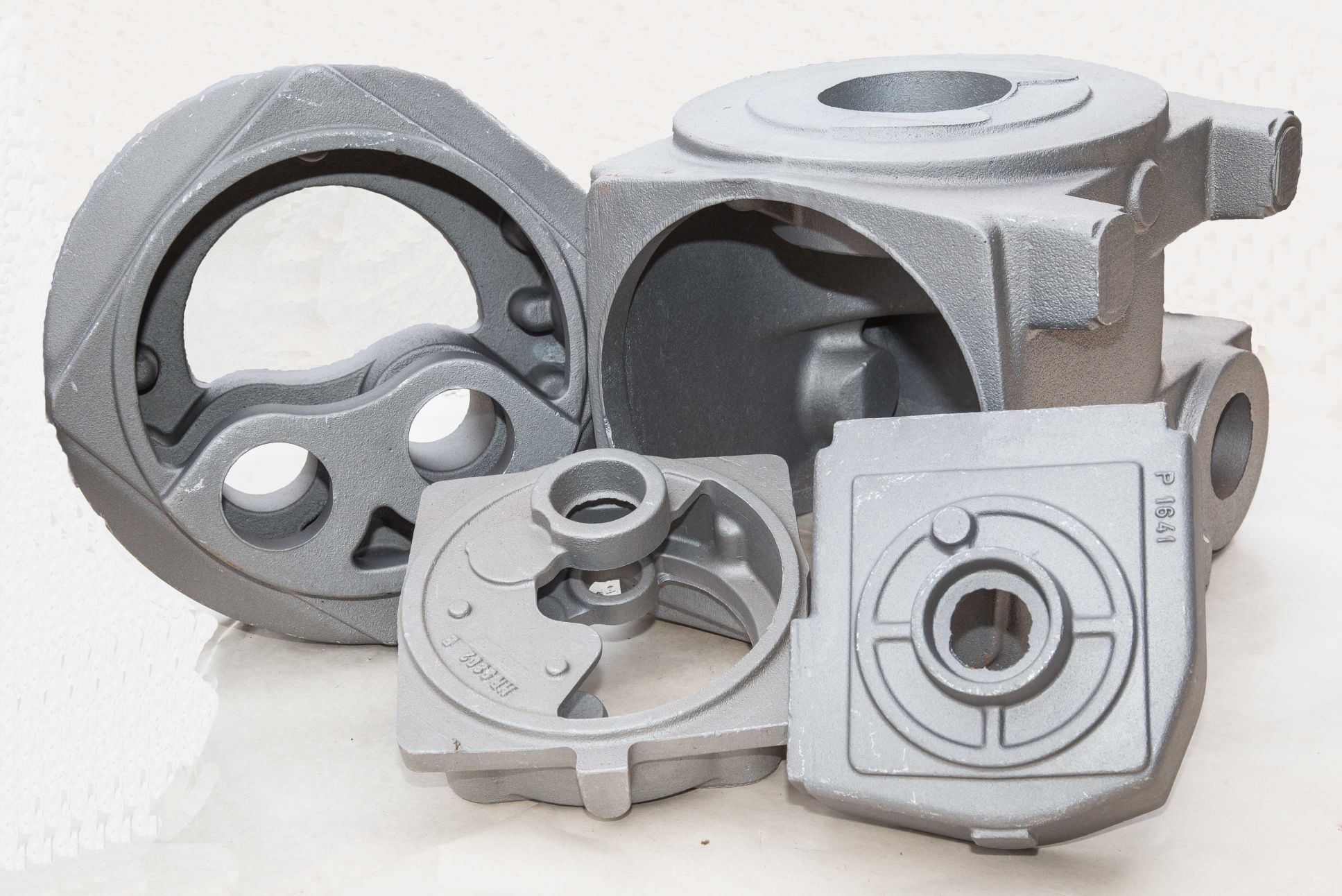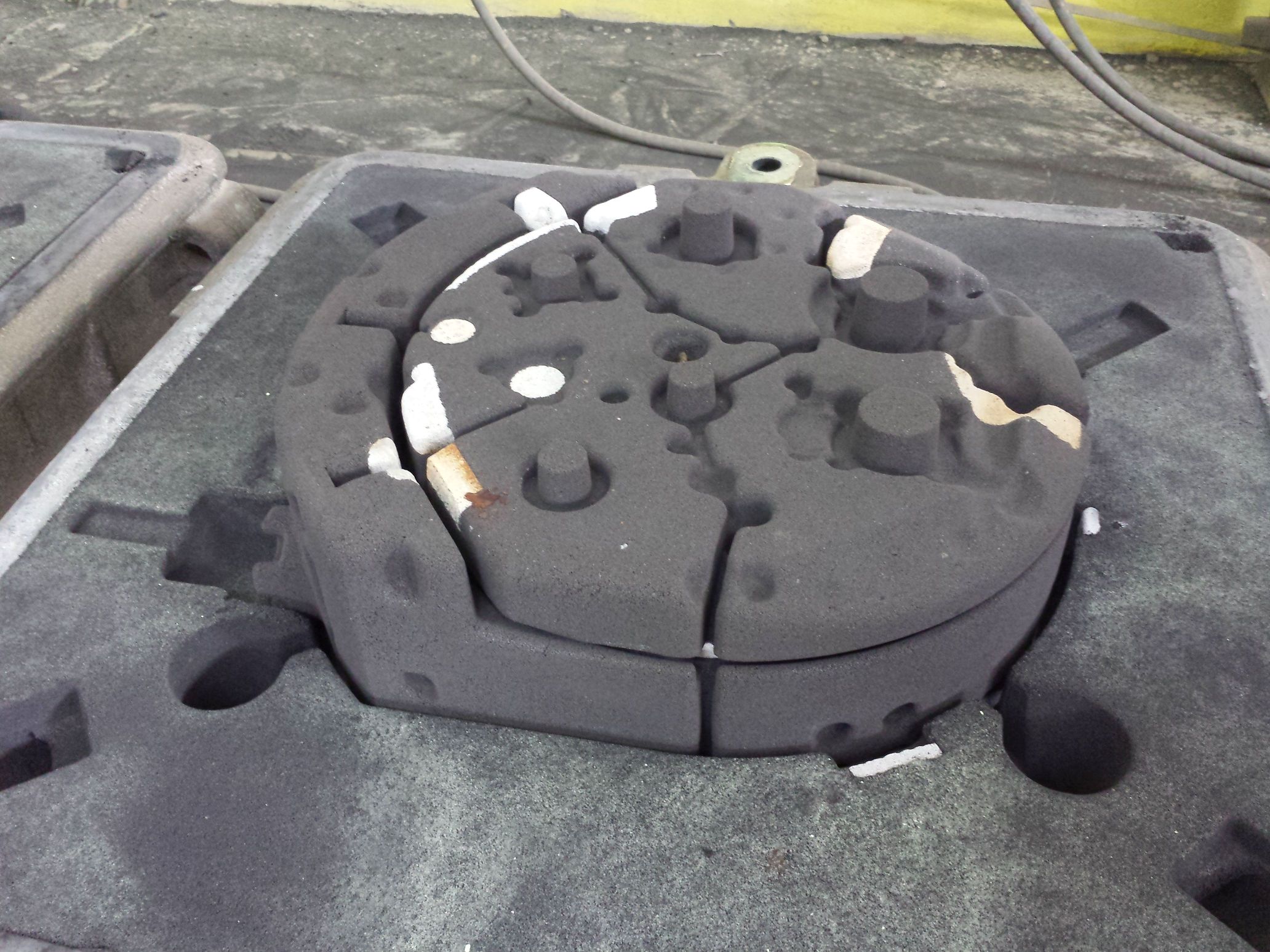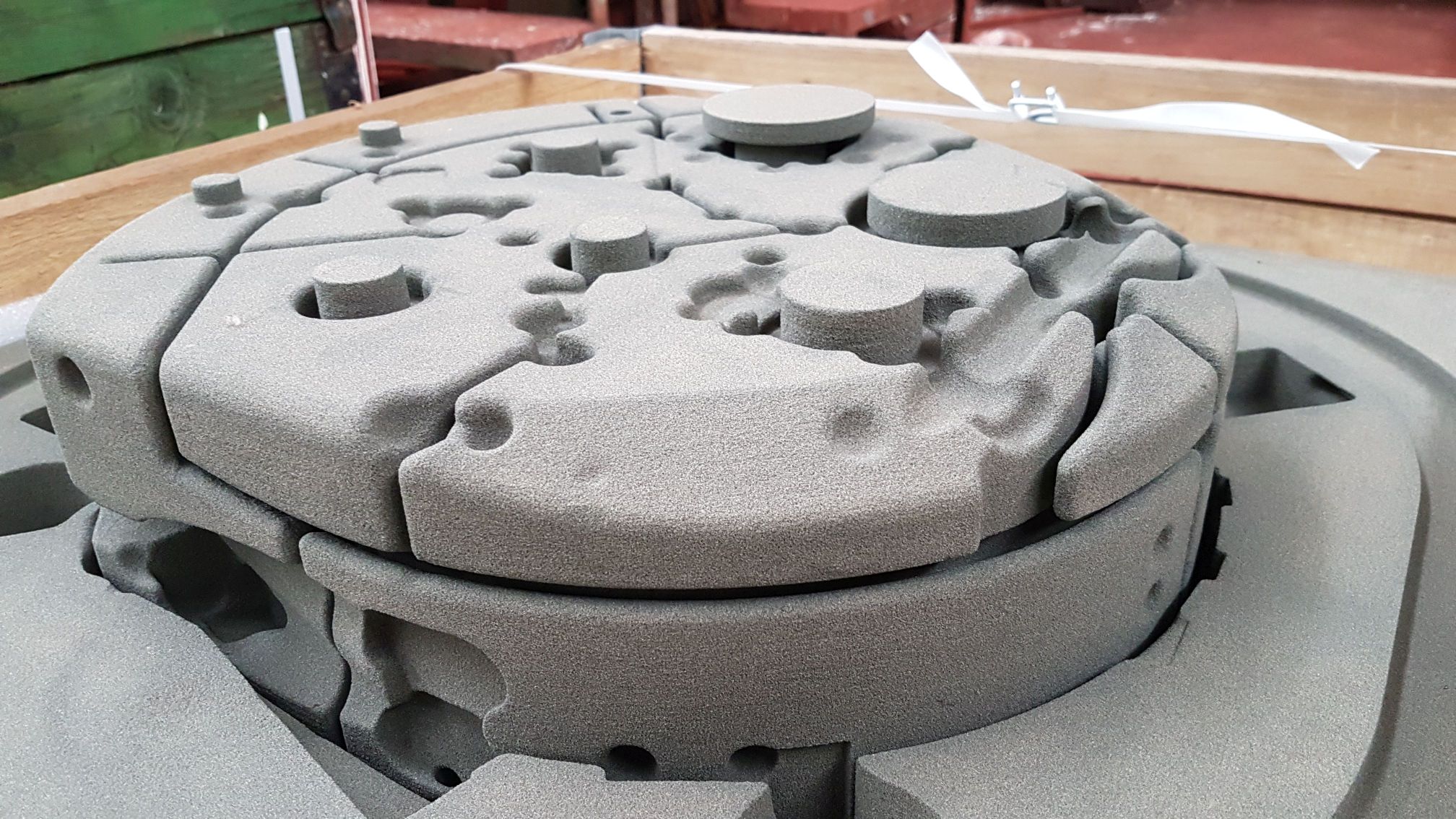Light metal foundry
production of magnesium and aluminium castings
In the foundry we manufacture castings of magnesium and aluminium alloys using sand and metal mould gravity casting process. We provide the entire production process from a design and pattern equipment making to CNC machining of castings as described in your drawing documentation. The castings are delivered according to the customer’s requirements - heat treated, impregnated (to increase gas-tightness), with required surface finishing (chrome plating, eloxal coating, powder coating), with the chemical analysis, metallographic evaluation, X-ray and mechanical tests (strength, hardness, notch toughness). All the manufacturing processes are subject to the quality management system according to ISO 9001:2015 standard, which guarantees that the foundry abides by all manufacturing as well as non-manufacturing procedures in accordance with the given standard.
The production of castings is mainly oriented on the manufacture of magnesium and aluminium alloy castings with complex shapes, such as engine blocks, gear boxes, electron wheels, aluminium wheels, professional hand tools etc. (see our product portfolio), which are delivered to our customers in sectors of general engineering, automotive and aircraft industry. We can produce castings from test samples (prototype manufacture) up to series of 10.000 pcs per year. The production area of our foundry plant is 9362 m2 and its yearly capacity is approximately 200 t of castings.
Sand moulds and cores are formed manually, by a machine or using the technology of direct printing of sand moulds and cores (3D printed moulds). Below you can find more detailed information on our manufacture of moulds.
We create the pattern equipment in three design classes to meet the requirements of DIN EN 12890 – H1 – H3 standards. For the pattern equipment manufacture we use wood, synthetic wood and metal materials (aluminium, cast iron, steel).

Magnesium castings
Alloys: AZ91, AZ63, Elektron RZ5 a Elektron 21
Weight of casting: 0,2 kg - 250kg
Maximum dimension of casting: 1200x1200x400 mm
Heat treatment: T4, T6
Surface treatment: chromating, powder coating
Magnesium alloys
| Alloys | |||
| American ASTM | AZ91 B80 | Elektron RZ 5 B80 | Elektron 21 B80 |
| Europen EN | ČSN EN 1753 | - | - |
| Europen Aircraft ISO 16220 | MC21110 | MC35110 | MC95320 |
| Czech ČSN | ČSN 42 4911 | - | - |
| Mechanical Properties: Heat Treatment T4 | |||
| Yield Strenght min. Rp 0,2 (Mpa) | 80 | 135 | 145 |
| Tensile Strenght min. Rm (Mpa) | 200 | 200 | 248 |
| Elongation min. A5 (%) | 4 | 3 | 2 |
| Description | General purpose alloy. Good founding properties. Good ductility, strenght and shock resistance. | Easy cast, weldable, pressure tight, with useful strenght. | High strenght alloy. Good corrosion resistance, good castability. |
Aluminium castings
Alloys: AlSi10MgMn, AlSi10CuMn, AlSi5Cu4Zn, AlSi7Mg and others
Weight of casting: 0,5 kg - 100kg, kokila max. 15kg
Maximum dimension of casting: 1200x1200x400
Heat treatment: T4, T6
Surface treatment: elox, powder coating

Alluminium alloys
| Alloys | |||
| Material | AlSi10MgMn | AlSi8Cu3 | AlSi7Mg0,3 |
| Europen EN | EN AC-43000 | EN AC-46200 | EN AC-42100 |
| Czech ČSN | ČSN 424331 | ČSN 424339 | ČSN 424334 |
| German DIN | DIN 239 | DIN 226 | - |
| Mechanical Properties: Fabricated (as cast) F | |||
| Yield Strenght min. Rp 0,2 (Mpa) | 80 | 90 | - |
| Tensile Strenght min. Rm (Mpa) | 150 | 150 | - |
| Elongation min. A5 (%) | 2 | 1 | - |
| Hardness min. HB | 50 | 60 | - |
| Mechanical Properties: Heat Treatment T4 | |||
| Yield Strenght min. Rp 0,2 (Mpa) | 180 | - | 190 |
| Tensile Strenght min. Rm (Mpa) | 220 | - | 230 |
| Elongation min. A5 (%) | 1 | - | 2 |
| Hardness min. HB | 75 | - | 75 |
| Description | A typical casting alloy with good casting properties and is typically used for cast parts with thin walls and complex geometry. It offers good strength, hardness and dynamic properties and is therefore also used for parts subject to high loads. | Excellent castability, good mechanical properties and cost-effectiveness. | Universal alloy with very good mechanical properties. Excellent corrosion resistance, very good for welding and machining. |

Production of sand mould
We use green sand and furan mixtures for manual forming. The maximum casting size depends on the maximum inside diameter of the moulding frame, i.e. 1400x1400x600 mm. The maximum weight of a magnesium casting is 250 kg and of an aluminium casting 100 kg.
We use green sand mixture for machine moulding. Moulds are manufactured on moulding machines Foromat 20 and 30. The maximum inside diameter of the frame is 700x700x700 mm.
Cores are made either by manual forming (bentonite and furan mixtures) or by the Cold Box method (core size up to 40l) or using 3D printing.
Moulds and cores made through 3D printing method are from furan mixtures. The maximum dimension of a mould made this way is 1500x750x700 mm.
3D sand printing
Sandprint is perfect for making prototypes, complicated cores or for huge castings. With this technology you can design "anything" and we will able to cast it. Maximum dimensions are 1800x1000x700mm. In case bigger mould we can glue moulds together.

